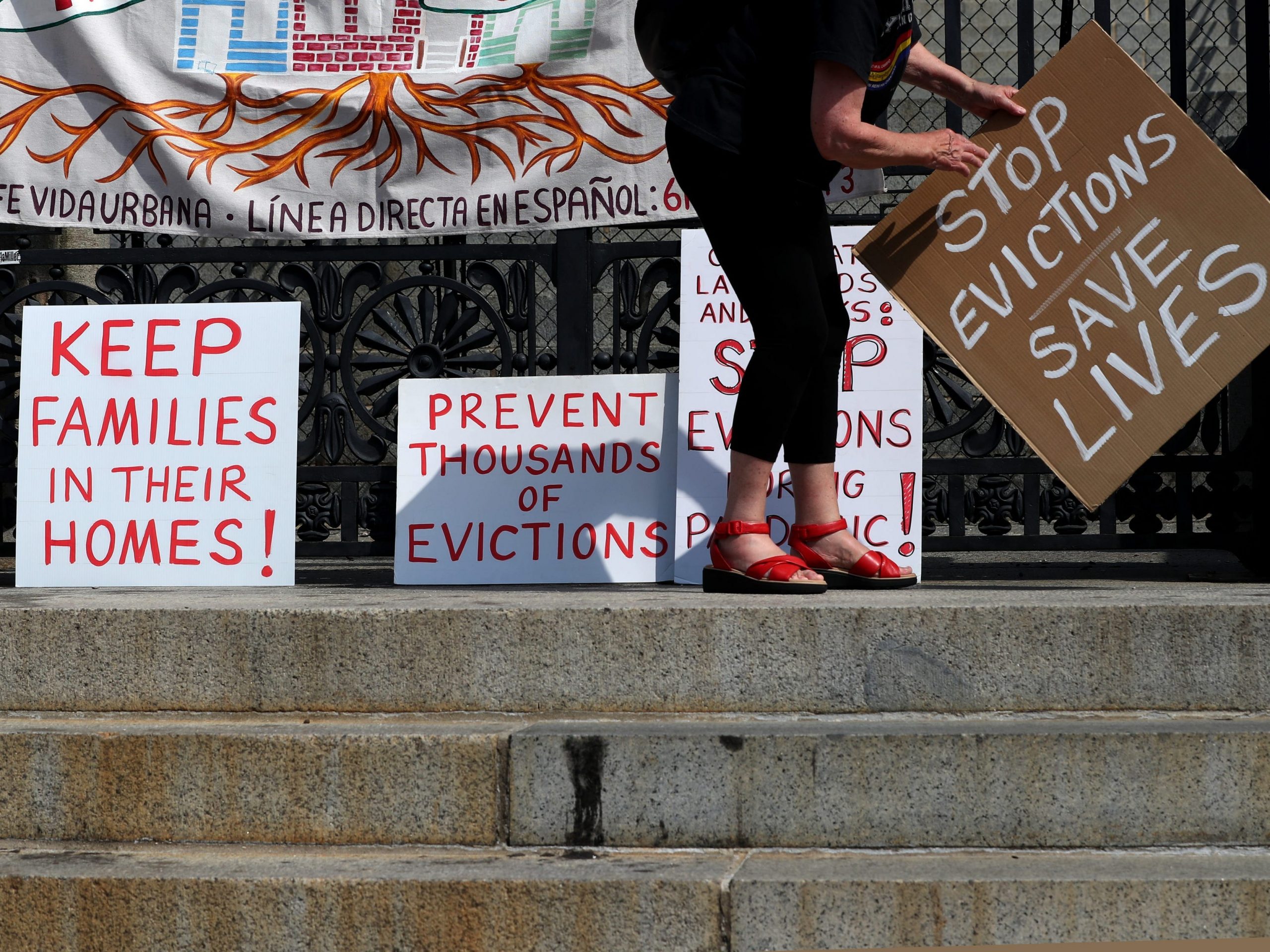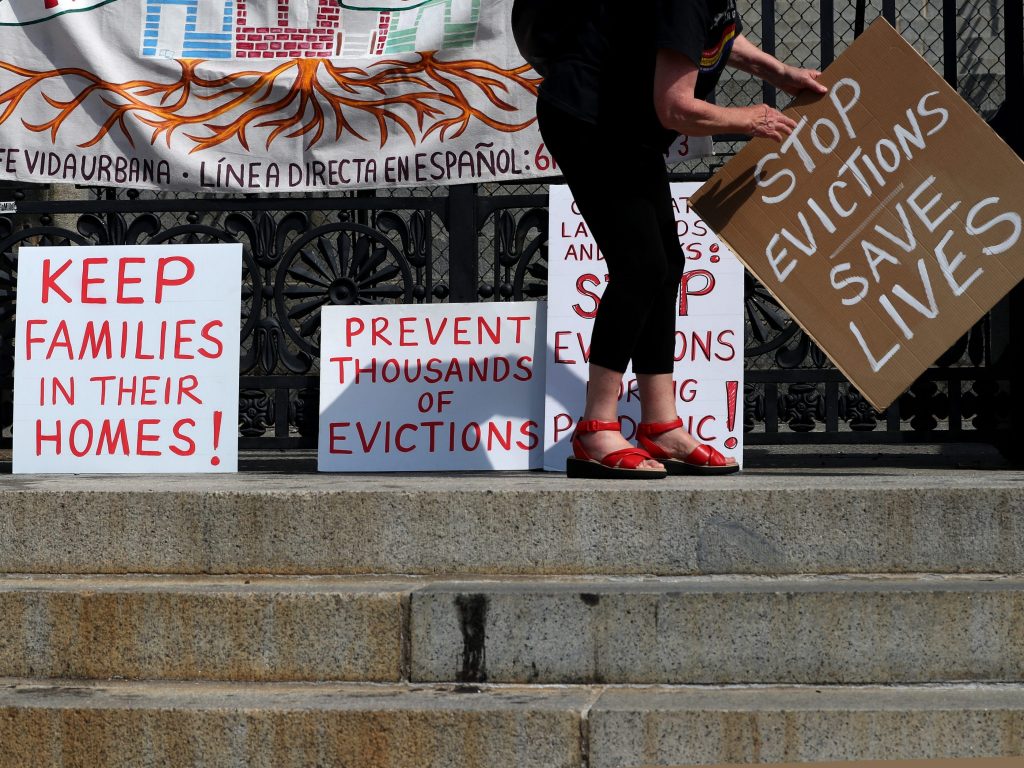
David L. Ryan/The Boston Globe via Getty Images
- The Supreme Court ruled by a 6-3 vote on Thursday to strike down Biden's eviction ban.
- The ruling came only three weeks after Biden issued the 60-day ban, covering most of the US.
- Previous bans were ruled unconstitutional, but kept in place as cases kept rising.
- See more stories on Insider's business page.
When President Joe Biden issued a 60-day ban on evictions of most renters nationwide earlier this month, he noted that upholding the ban would be legally challenging. He was right.
After months of debate over the legality of banning evictions nationwide, the Supreme Court had the final say and shut down the moratorium.
About 7.4 million Americans are at risk of eviction in the coming months -about 16% of all renters, according to Census Pulse Survey Data.
On August 3, Biden's Centers for Disease Control and Prevention (CDC) issued the new evictions ban following pressure from progressives, after a nationwide ban had just lapsed on July 31. The new one was not as sweeping, but Biden said at the time it would apply to high-outbreak areas, effectively 90% of renters nationwide. He also said it risked getting struck down in court.
"Any call for a moratorium based on the Supreme Court's recent decision is likely to face obstacles," Biden said at a news conference.
He cited a July opinion from Supreme Court Justice Brett Kavanaugh that stated any eviction ban extension would need to come from Congress. By a 6-3 vote on Thursday, the Court ruled that the CDC does not have "the sweeping authority that it asserts" and upheld Kavanaugh's opinion.
The White House said it was "disappointing" that the Supreme Court made this ruling while there remain a "significant" number of cases across the country as a result of the Delta variant. Here's why the highest court in the US ruled the way it did.
The argument against extending the eviction ban
One of Biden's first actions in office was extending the CDC's nationwide eviction ban, but landlords had sued the government, arguing that only Congress has that authority. Since then, several courts have ruled the ban unconstitutional, agreeing with the landlords.
On February 25, a Texas court ruled against the ban because the government "has not claimed such a power at any point during our nation's history until last year," the judge wrote. Ohio and Tennessee courts soon followed suit, saying the moratorium was harmful toward landlords and property owners and was unenforceable in those states.
US District Judge Dabney Friedrich was the first judge to strike down the ban nationwide in May, saying the agency had overstepped its authority. Weeks later, she issued an order keeping the ban in place only to prevent further deaths caused by COVID-19.
The Alabama Association of Realtors, which sued to challenge the moratorium in Friedrich's case, argued that landlords would lose $13.8 billion to $19 billion each month in unpaid rent as as a result of the moratorium.
After Biden further extended the ban in August, Friedrich once again decided to keep the ban in place, but only to prevent a wave of COVID-19 cases. She said she still believed the ban was illegal in doing so.
The argument for extending the eviction ban
The March and December stimulus packages gave states $46.5 billion in emergency rental assistance. But Insider reported on Wednesday that only 11% of that aid has gone out, with 89% of it unspent at the time of the Supreme Court's ruling.
There is now the very real risk that billions of aid will go unspent as vulnerable tenants face eviction in the midst of a still-raging pandemic.
Progressive lawmakers were so enraged by the July lapse of the ban that some of them slept on the steps of the Capitol until the CDC issued its most recent 60-day moratorium.
"I knew I could not leave without doing whatever I could to save lives," Rep. Cori Bush, who was once homeless herself, told Insider.
Bush wrote on Twitter on Thursday she will keep fighting against evictions and urged Congress to act "immediately."
